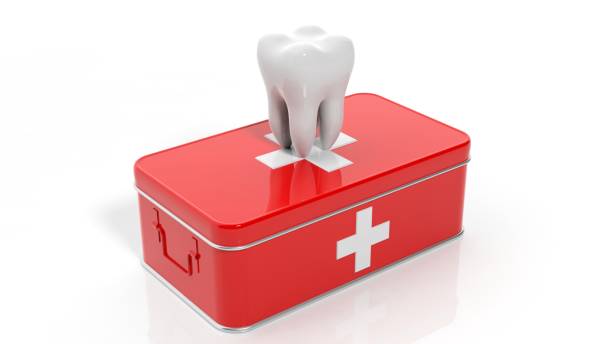New York City Emergency Dentist
What Is The Definition Of A Dental Emergency?
A dental emergency is a condition with the teeth, gums, or jaw that needs to be treated right away. Dental emergencies come in a variety of forms and severity levels. Dental emergencies include pain, swelling, bleeding, and a damaged or loose tooth. An accident or trauma may be the cause, but symptoms may be modest at first and worsen over time.
What Does It Take To Have A Dental Emergency?
A damaged tooth, pain, or trauma are all examples of dental emergency. Other problems like minor sensitivity or a loose crown are unlikely to be emergencies, although they could be. Do not hesitate to contact an emergency dentist in New York City if you believe you are experiencing a dental emergency.
Don't be alarmed if you have a dental emergency. It's critical not to overlook dental problems. Please contact us as soon as possible to avoid any problems from becoming worse. Dentists are there to help you with any dental emergency, and remember that prevention is the best way to avoid dental emergencies. They can discover any potential difficulties thanks to your biannual checkups and cleanings.
Call your local dentist if you have a question about a probable dental emergency, such as a broken bridge. Then you'll have the assurance of knowing what to do next, whether it's right away or the next business day. Dentists recognize that dental emergencies can be frightening; nevertheless, keep in mind that they are there to assist you and give calm, comfortable care.
What Can An Emergency Dentist Do For You?
Dental crises can be a source of anxiety. It's comforting to know that dentists pay extra attention to patients who are in pain or have a cosmetic emergency. Many people are concerned because they have avoided therapy for as long as they have been able, and now they can't. Most dentists are aware of the situation.
What Could Your Symptoms Indicate?
Cold sensitivity usually indicates that something is hurting the tooth's nerve. This usually indicates a cavity, but it could also indicate that your teeth have been exposed to acids. Aside from water, most beverages are acidic. Teeth are particularly sensitive to juices, bottled tea, and sodas. The teeth become sweet or cold sensitive at first. Cavities are likely to occur later. Cold and sweet sensitivity can usually be alleviated by treating tooth decay and removing sugar and acid sources.
Hot and cold sensitivity could indicate a problem with the oral nerve, necessitating a root canal operation. Don't be concerned about that phrase. The majority of the time, a root canal is a fairly relaxing treatment.
Facial edema is a serious issue that requires immediate antibiotic treatment. If an emergency dentist is not accessible right away for whatever reason, call your doctor or go to an urgent care clinic. While a dental operation may be required, the antibiotics will keep the illness under control.
Is A Cracked Tooth Considered An Emergency Dental Situation?
You won't always be able to tell whether you've fractured a tooth. You may have bitten onto something and believe your tooth has fractured. This does not imply that it is an emergency. However, if you can plainly see the crack, it is most likely an emergency. It's advisable to take care of it as quickly as possible if it's accompanied by sensitivity to hot and cold.
You might believe you've shattered a tooth, but there's no way to tell. If your tooth sensitivity hasn't changed in certain circumstances, our dentists can see you during regular business hours. Dentists can then examine the tooth for cracks. Give them a call if you're unsure, and they'll help you figure out the best course of action.
Should I Visit The ER If I Have Dental Pain?
In some cases, immediate dental care from an emergency dentist is required. Hot sensitivity and throbbing are signs that require immediate attention. If you have a dental emergency, call a dentist since they may have an on-call service.
Facial Swelling Causes
Swelling in the face can indicate a dental emergency. If you experience swelling as a result of something like a fractured tooth, it will be concentrated in the cheek area of the tooth. Dental problems, unless they're an infection that spreads quickly, won't cause your entire face to swell.
Allergic responses, eye infections, drug side effects, sinusitis, thyroid imbalance, fluid retention, a broken nose, and certain rarer disorders like angioedema are all typical causes of facial swelling. The only time a dental problem might induce significant face swelling is if there was an abscess caused by a tooth infection. This would almost certainly result in severe pain and other symptoms prior to the swelling.
A Toothache's Causes
Toothaches are caused by inflammation in the pulp, which is located in the center of the tooth. Nerve endings in the pulp are extremely sensitive and respond to pain messages. Inflammation of the pulp can result from a cavity in which decay has progressed through the enamel and dentin layers of the tooth and into the pulp. It might be caused by gum irritation in the tooth's region. A toothache can also be caused by trauma, such as a tooth fracture. TMJ disease, or problems with jaw alignment, can cause discomfort to radiate outward and into the teeth in some situations.
If you have a broken front tooth, bring the fragment or tooth with you to your emergency dentist visit.
Dental crises can be excruciatingly painful, frustrating, and terrifying. Take a deep breath and relax, knowing that our team is here to assist you at all times. If you have a dental emergency or have any questions, immediately call an emergency dentist, who will offer you instructions for your case.

